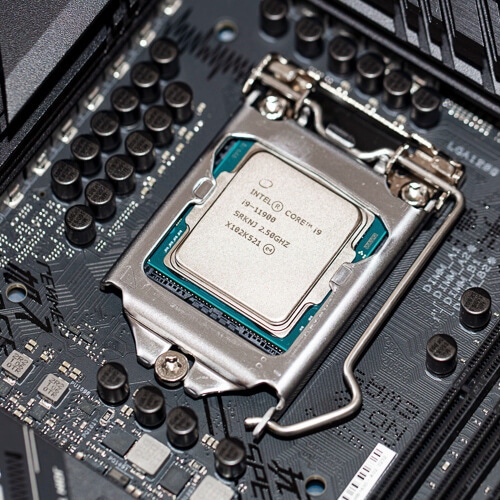Intel will fund 51% of the cost of building new chip-making facilities. Brookfield will own the remainder, and the companies will split the revenue that comes out of the factories.

Brookfield Infrastructure has announced a new $30 billion deal with Intel that's designed to help the chip giant finance the construction of more silicon manufacturing facilities in the US.
The first-of-its-kind agreement could pave the way for additional investments into the chipset space among asset-management firms like Brookfield. That's important to the telecom industry because it relies heavily on the chips developed by companies like Intel as well as investment money flowing in from companies like Brookfield.
Figure 1:  (Source: Ruslan Lytvyn/Alamy Stock Photo)
(Source: Ruslan Lytvyn/Alamy Stock Photo)
Canada's Brookfield is among the world's largest digital infrastructure investment firms. It owns fully 164,700 cell tower sites, 22,000 kilometers of fiber optic cable and 52 data centers globally.
In recent years, the company has played a pivotal role in some of the biggest transactions in the telecom space. For example, just this summer, Brookfield teamed up with DigitalBridge to buy a 51% stake in GD Towers, Deutsche Telekom's tower business in Germany and Austria. And Brookfield's $2.70 billion takeover of Australian telecom company Uniti Group is scheduled to close sometime this month.
In the US, Brookfield was at the center of AT&T's $1.1 billion sale of its data center business in 2019, and the $2.6 billion purchase of Cincinnati Bell that same year.
Incredibly, Brookfield's telecom division is its smallest. It also owns extensive holdings in other infrastructure sectors, including utilities, railroads, and gas and natural gas transmission lines.
According to some financial analysts, massive investment companies like Stonepeak, KKR and Brookfield have helped to skew the strategies of some of the biggest telecom companies in the US. Their willingness to invest in fiber networks, cell towers and other digital infrastructure assets has prevented big telecom network operators from purchasing those assets – essentially slowing the rate of operator consolidation in the US telecom market.
"A central theme continues to be the substantial amount of private money wanting to invest in digital infrastructure, typically with long time horizons and very low costs of capital," wrote the financial analysts at Raymond James in a summary of their recent 17th annual Park City Telecom Summer Summit.
"As public companies are priced out of many deals, they shift focus to building vs. buying, allowing for growth at acceptable returns even if it means slower capital deployment," the Raymond James analysts continued. "Private debt financing has become the go-to source, as it appears large banks are less willing to participate."
Made in the USA
And this is why Brookfield's new investment into Intel is so noteworthy. Under the terms of the agreement, Intel will fund 51% of the cost of building new chip-making facilities in Arizona. Brookfield will own the remainder, and the companies will split the revenue that comes out of the factories. According to Intel, the deal will "provide Intel with a new, expanded pool of capital for manufacturing buildouts."
The agreement also comes on the heels of US legislation earmarking $50 billion for domestic chip manufacturing and research. Intel and other chip manufacturers supported the legislation.
Broadly, the developments ought to help increase the production of advanced chipsets inside the US. The Wall Street Journal, citing data from Boston Consulting Group, reported that just 12% of the world's chipset manufacturing industry is based in the US. That situation has created worries about how geopolitical friction with the likes of China – a major center for chipset manufacturing – might ultimately affect the US technology sector.
For the global telecom industry, chipset production and supply is a critical topic. Indeed, a wide range of telecom equipment vendors have complained of difficulties in obtaining sufficient high-grade chips for their products. Those supply chain headaches have, in part, forced vendors to raise prices on their products for network operators.
A final factor in the new agreement between Intel and Brookfield is the possibility for Intel to begin manufacturing chips for other companies. Qualcomm, a top designer of chips for smartphones, has already signaled a willingness to use Intel's fabrication facilities for the physical production of its designs. Other chipset companies in the telecom industry could also follow suit.
Related posts:
— Mike Dano, Editorial Director, 5G & Mobile Strategies, Light Reading | @mikeddano
About the Author(s)
You May Also Like











